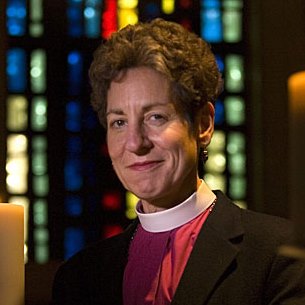There is something very appropriate about celebrating the feast of Athanasius in the midst of conversations about hope and climate change. Athanasius was a priest and then bishop in the 4th century in Egypt. He’s best remembered for his earnest opposition to the heresy called Arianism. At the time the church was still sorting out the particulars of Trinitarian theology that we pretty much take for granted today. Arius insisted that Jesus was human, only human, a creature made by God the father, and therefore distinct from God. Athanasius worked tirelessly – and often thanklessly – in particular in response to his government to develop a fuller understanding of Jesus as part of the Trinitarian nature of God. He was a proponent of the line in the Nicene Creed that says that Jesus Christ is “of one Being with the Father.”
This isn’t just parsing words or deciding how many angels can dance on the head of a pin. Athanasius was responsible for clarifying the basic Christian understanding that Jesus is both fully God and fully human. How we understand who Jesus is has everything to do with how we understand our lives and vocation as Christians. One of Athanasius’ best-known lines is, “God became human in order that we might become divine.” God’s entry into human flesh showed us what it means to be fully human, in the largest sense of that and invites us to share that vocation and possibility. If Jesus were not fully God and fully human, it would deny any possibility that beings who inhabit flesh and blood human bodies could have a real relationship with God whom we call the Holy One.
That is the same sort of thing Ezekiel is talking about in eating the scroll – when he says, ‘eat the word of God, and become what you eat, and then go tell Israel. Go show and tell your neighbors what it is to be made in the image of God.’ That’s what we do here as well – come and eat at this table, and become what you eat, and then share yourself, your Word of God-self and flesh of God-self with a very hungry world.
Yet it is not only God in human flesh who images the Holy One. All parts of God’s creation must reflect their maker in some way. The riotous diversity of the flowers of the field, the creatures of the sea – even Leviathan, whom God has made “for the sport of it” according to the psalmist[1] – and the sparrows that Jesus invokes in the gospel today – their creator cares for them and intends that each one flourish.[2]
That is part of the challenging message of today’s gospel: you will be hated because of what you teach – watch out if you advocate for justice for all the world’s people and the other parts of creation! But don’t be afraid to speak up and tell out what you know, for your soul will find life in doing that. Even in the face of danger, know that God cares for each one of us in ways beyond our knowing, even more than the evidence we see in the birds of the air and the flowers of the field.
Athanasius had a predecessor in the faith named Irenaeus who famously remarked that the glory of God is a human being fully alive. That’s what Athanasius also meant in saying that our vocation was becoming divine. Fully alive human beings know themselves made in the image of God, created as brother to the sun and sister to the moon, friend to the deer, and ant, and sparrow, as well as the enfolding blanket of atmosphere and ocean. We are one family, related through the one who created us to reflect the divine glory in fully-aliveness. There is no room in that for misusing our brothers and sisters, human or otherwise. There is abundant hope for all, given the image we reflect, and the ever-creative One in whom we live and move and have our being.
Athanasius stood firm in the face of those who would deny God’s presence in human flesh. We must do the same in the face of those who would destroy God’s reflection in creation.
[1] Psalm 104:26
[2] Matthew 10:22-32
